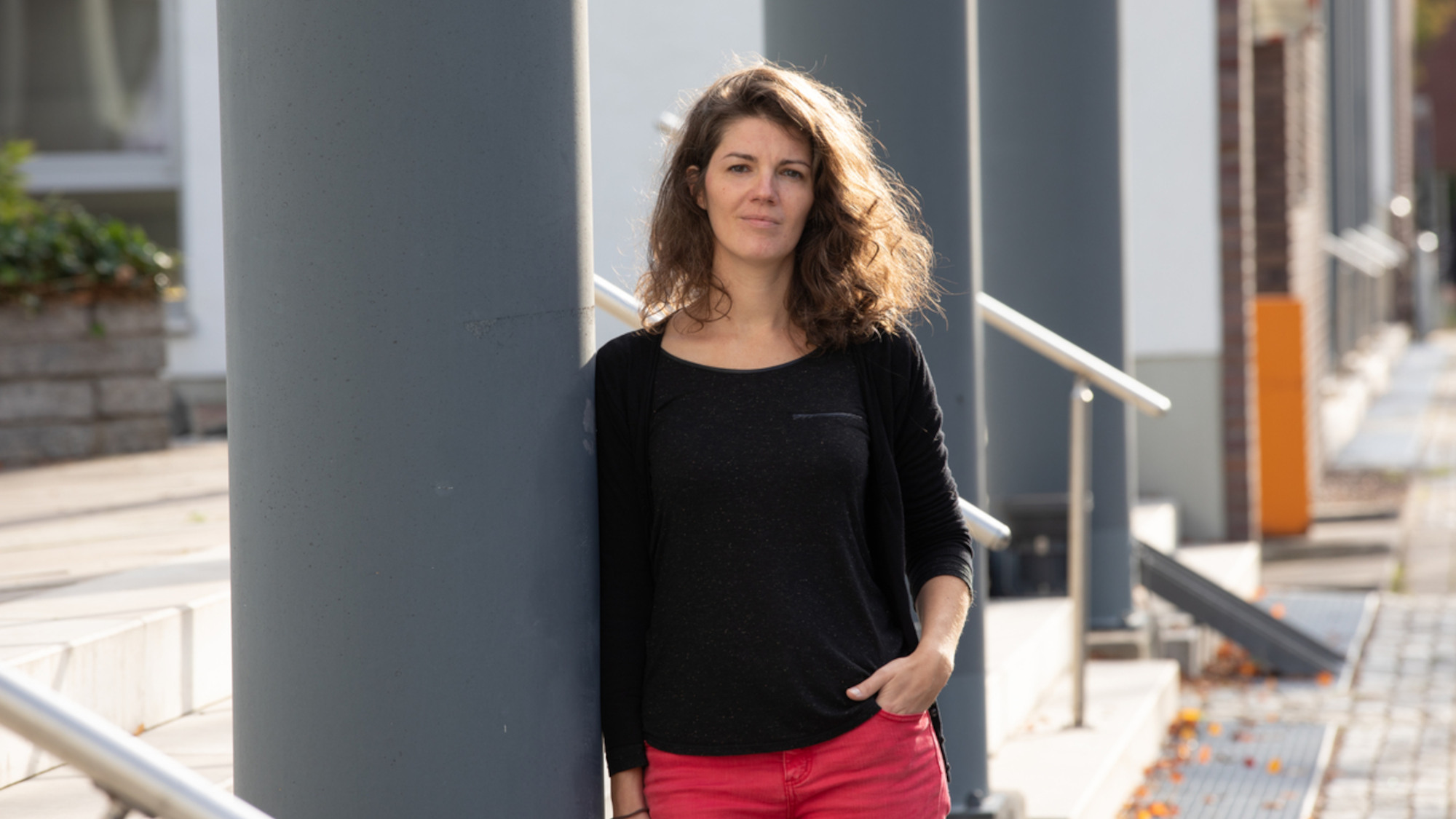
© WFB/Jens Lehmkühler
The Sustainable Value of Caregiving
Dr. Sonja Bastin and her commitment to the recognition of care work
Whether as a child, an elder, or due to illness: for about a third of our lives, we are dependent on the care of others. Women provide the bulk of this caregiving. The family sociologist Dr. Sonja Bastin is committed to broader social recognition and more equal opportunities for caregivers.
Years later, Sonja Bastin is still occasionally asked about her award. More than two years ago, in March 2021, she was named Bremen’s “Woman of the Year” by the “Landesfrauenrat” (state women’s council) for her research in care work. She reminisces, “One of the main reasons this delighted me so much was that it brought this topic more into the spotlight.”
Few researchers in Bremen have addressed caregiving responsibilities with as much dedication and intensity as the 39-year-old. Taking care of others, work done within and for the family, and raising children is in her eyes an important part of a sustainable society. “Just as we could not live without a healthy environment, we cannot exist without care work. Both systems suffer from a threat to their resources; both are in crisis.”
Unpaid care work is shouldered predominantly by women and its value is never taken into account on a macroeconomic balance sheet. Those who provide care work take on a large responsibility, receive little recognition, all while combatting financial and professional disadvantages. For many, the precarious situation of caregivers was particularly visible during the COVID pandemic. “Our research findings show that mothers in particular have expressed less trust in politics since the beginning of the pandemic. This can result in negative effects on democracy and social cohesion.”
“Just as we could not live without a healthy environment, we cannot exist without care work.”
Despite a series of individual measures to improve the compatibility of family and work, Bastin feels a systematic approach is lacking. Implementing a women’s quota is well and good, but does not necessarily bring mothers providing care work into leadership positions who would then help shape politics and the economy based on their experiences.
What value do we place on which work? There needs to be a societal debate on this, Bastin says. “Profound changes in our understanding of economics are necessary.” As an example, she cites the implementation of a four-day workweek so that enough time for care and charitable work remains. Only those who provide these services should receive a full wage compensation.
Bastin supports the Equal Care Day initiative. At the University of Bremen, she was one of the initiators of the “carat- caring all together” project (website in German only). The goal of the lecture series, for which the mayor Dr. Andreas Bovenschulte has taken over sponsorship, is to network those in economics, research, politics, and in care work and bring awareness to the issues in order to find solutions.
Her dedication to care work also has a biographical component. She grew up in Stade and, as the oldest of four siblings, took on responsibilities from a young age. The closeness to her family was one reason why Sonja Bastin decided to pursue a bachelor’s and master’s degree in Sociology and Social Research at the University of Bremen. After completing her PhD at the Max Planck Institute for Demographic Research in Rostock, she returned to Bremen as a research assistant at the Institute for Labour and Economy and eventually at the institute where she had previously worked as a student assistant: SOCIUM – Research Center on Inequality and Social Policy. “The empirical social research in Bremen is strong,” she says, emphasizing the international exchange within the BIGSSS - Bremen International Graduate School of Social Sciences.
Despite this, the mother of three recently left the university. “That was not a completely voluntary decision,” she candidly admits, noting her uncertain professional perspectives as a researcher, due to temporary contracts. “I didn’t want an additional temporary contract extension without real possibilities for the future.”
As in many areas of the business world, the same is true within the world of research: the higher up the hierarchy, the less mothers there are. “We should ask ourselves how far those with caregiving obligations are able to go with the existing structures,” Bastin says. “And whether we have really done everything possible to establish equal opportunities.”
Since August 2023, she has worked as a consultant for social infrastructure development at the Office for Labor, Social Affairs, Youth, and Integration. She has always enjoyed applied work, even as a researcher. “This lets me take my knowledge and implement it,” she says. “I really value that.”